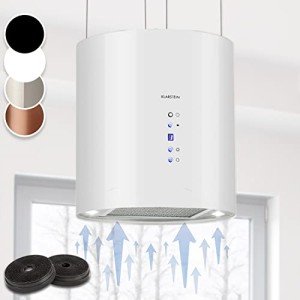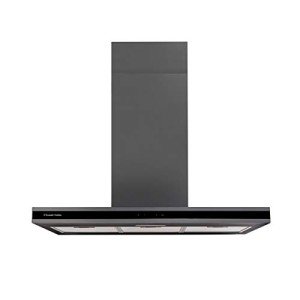10 No-Fuss Strategies To Figuring Out Your Extractor Fan For Island
페이지 정보
본문
Extractor Fans for Island Kitchens: An Essential Guide
Island kitchen areas are a hallmark of contemporary home style, providing both style and functionality. However, as gorgeous as these kitchen designs can be, they often feature their own set of challenges, especially concerning ventilation. Among the best solutions for these obstacles lies in the installation of extractor fans. This post serves as an informative guide on extractor fans for island cooking areas, describing their importance, types, setup elements, and upkeep.
Comprehending Extractor Fans
Extractors fans, likewise referred to as range cooker hoods for islands or exhaust hoods, are devices that help remove smoke, steam, heat, grease, and cooking smells from the kitchen. They run by drawing air through filters and venting it outside or recirculating it back into the kitchen.
Importance of Extractor Fans in Island Kitchens
Island cooking areas typically do not have appropriate ventilation due to the fact that they don't have traditional walls to install a range hood on. This can cause pain and prospective health threats from breathing in fats, smoke, and odors. Here are a number of reasons that extractor fans are vital:
- Improved Air Quality: They help preserve a fresher indoor environment by getting rid of toxins.
- Lowered Heat: Cooking can increase temperature levels; extractor fans assist reduce this by removing hot air.
- Grease Control: Regular usage minimizes grease buildup on cabinets and walls, aiding in kitchen upkeep.
- Improved Cooking Experience: A well-ventilated kitchen makes cooking more enjoyable, permitting chefs to focus on their cooking developments.
Kinds Of Extractor Fans for Island Kitchens
When picking an extractor fan for an cooker hoods for islands island (head to Ksye) kitchen, it is very important to think about the different types available. Here are the most common choices:

Ducted Extractor Fans:
- Functionality: These fans vent air outside, using ducts.
- Pros: Highly efficient at removing smells and humidity.
- Cons: Installation can be complicated and may need extra structural adjustments.
Ductless (Recirculating) Extractor Fans:
- Functionality: These fans filter air and after that recirculate it back into the kitchen.
- Pros: Easier to set up, as they do not require ductwork.
- Cons: Less effective at removing odors compared to ducted designs.
Downdraft Extractor Fans:
- Functionality: Installed behind the range, they pull smoke downwards and vent it through ducts or filters.
- Pros: Sleek style, perfect for preserving an open kitchen.
- Cons: Effectiveness can be limited by cooking design and wind instructions.
Wall-Mounted Extractor Fans:
- Functionality: While not specifically for islands, some designs can be adjusted for cooker island island use.
- Pros: Wide range of styles and sizes available.
- Cons: May require longer ducts to reach outside.
Table: Comparison of Extractor Fan Types
| Type | Venting Method | Pros | Cons |
|---|---|---|---|
| Ducted | Outside | Highly effective at eliminating odors | Complex installation |
| Ductless | Recirculating | Easy setup | Less effective at smell removal |
| Downdraft | Downward | Sleek style | Minimal effectiveness |
| Wall-Mounted | Outdoors | Range of designs | May require substantial ductwork |
Factors to Consider When Choosing an Extractor Fan
Picking the best extractor fan involves examining particular crucial elements:

- Kitchen Size: The bigger the kitchen, the more powerful the fan ought to be. The capacity is generally measured in cubic feet per minute (CFM).
- Sound Level: Some fans can be quite loud. Go with models with lower sones (a measure of viewed loudness).
- Filter Types: Mesh filters are easy to clean, while charcoal filters should be changed periodically.
- Design and Aesthetics: Considering that picked fans can be a centerpiece in an island hob kitchen, their design should match the general looks.
- Budget plan: Prices for extractor fans can vary commonly, so it's crucial to set a budget that thinks about both purchase and setup expenses.
Setup Tips
Appropriate installation is important for optimal efficiency. Here are essential suggestions:
- Height Consideration: Install the fan 24-30 inches above the cooking surface for optimum efficiency.
- Ducting: If using a ducted system, ensure ducts are as brief and straight as possible to improve airflow.
- Electrical Considerations: Ensure compliance with regional codes; consider working with a professional electrical expert if required.
- Availability: Ensure that controls are quickly available for day-to-day usage.
Maintenance of Extractor Fans
To make sure longevity and optimum efficiency, routine maintenance is required. Here are some ideas for maintaining extractor fans:
- Clean Filters Regularly: Depending on use, filters ought to be cleaned up monthly or bimonthly.
- Check Fan Blades: Periodically look for grease buildup on the blades and clean as required.
- Check Ducts: Ensure that the ductwork is devoid of blockages and clean every 1-2 years.
- Service the Motor: Consider annual maintenance of the motor to ensure it runs efficiently.
FAQs About Extractor Fans for Island Kitchens
Can I install an extractor fan myself?
- While some property owners may set up extractor fans themselves, it is a good idea to hire an expert for intricate installations, particularly for ducted systems.
How do I figure out the proper CFM for my kitchen?
- A general guideline of thumb is to calculate 100 CFM for every direct foot of your cooking surface area. For example, a 5-foot cooking surface would require a fan with a minimum of 500 CFM.
Are ductless extractor fans reliable?
- Ductless extractor fans can successfully filter out some smells, but they are not as powerful as ducted designs for total smell and island cooker smoke removal.
How typically should I change the filters?
- Charcoal filters need to be replaced every 3-6 months, while metal filters can be cleaned and reused.
Is the noise level of extractor fans adjustable?
- Numerous modern extractor fans included adjustable fan speeds, allowing users to manage noise levels based on cooking requirements.
Choosing the ideal extractor fan for an island kitchen is a necessary component in maintaining a comfy cooking environment. Comprehending the various options, their functionality, and upkeep requirements empowers property owners to make informed choices. Appropriate setup and upkeep also ensure that these gadgets operate efficiently, contributing to a cleaner, more pleasant cooking space. By considering the information provided in this comprehensive guide, individuals can enhance the performance and visual appeal of their island kitchen areas.

